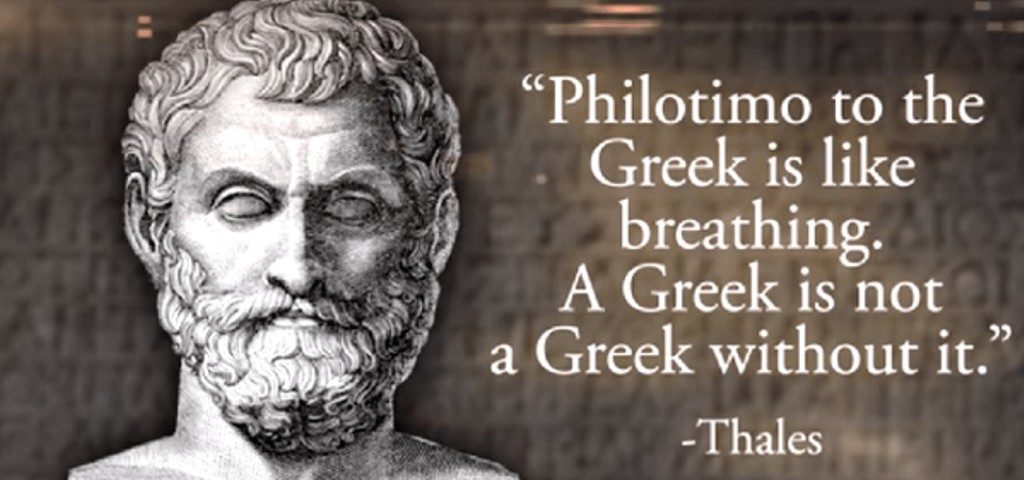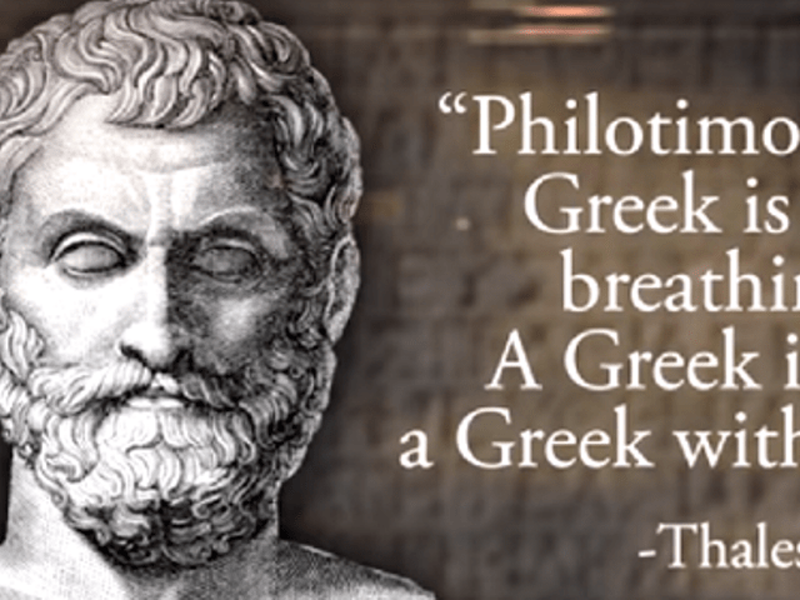Philotimo is a special Greek word that even Greeks have trouble defining or translating. So much so that it became a hot topic tackled by English broadcaster BBC in their article “Philotimo: the Greek Word that can’t be Translated.”

Vassilios P Vertoudakis, lecturer in Ancient Greek philology at the National and Kapodistrian University of Athens told BBC, “All the same, Philotimo has become one of the building blocks of the Greek disposition because of the unique standing of Greece in relation to what we call the West.”
He explained that Philotimo comes from the Ancient Greek word philotimia (φιλοτιμία), of which the first attested written reference dates to the dawn of the Greek classical period (6th and 7th Centuries BC) in the writings of lyric poet Pindar.
It’s no surprise that there is no translation for this word, as you need to experience it to truly understand it.
In most common dictionaries, the word Philotimo describes a list of virtues that include honour, dignity and pride, the ideal actions and behaviours, hospitality, and warmth received by another.
The saying “actions speak louder than words” comes to mind when explaining Philotimo, as it's easier to give examples of when you have experienced Philotimo rather than trying to define the word itself.
According to Elder Paisios’, the definition of the word Philotimo refers to “the relevant distillation of goodness; the radiant love of the humble man bereft of himself, but with a heart full of gratitude to God and his fellow man; because of his spiritual sensitivity he tries to repay even the slightest good that others do to him.”
“It was only after the consolidation of democracy in classical Athens around the 4th and 5th centuries BCE, when competition was replaced by co-operation, that the word gained a more positive connotation. At that time, “a man with Philotimo signified someone who loves to receive the praises of his city, but first serves the community.”
“While the West was experiencing Enlightenment and developing modern states that tied together individuals under the rule of law and an abstract sense of responsibility, the subjugated and inward-looking Greeks were bound by pride, localism, and interpersonal relationships. Instead of developing the institutional consciousness seen in Western Europe, Greek communities were imbued with Philotimo, triggered not by law and logic but intense emotion and some degree of intimacy,” Vertoudakis told BBC.
If you break the word down, 'φίλος-filos' means friend, and 'τιμή-timi' means honour.
For Greeks, Philotimo is essentially a virtue and a way of life. It's a way of describing the quality of being trustworthy and explaining decent actions and decisions.
At its core, Philotimo is about goodness, selflessness, giving without wanting anything in return, and the force that drives individuals to think about the people and the world around them.
So, it is no surprise that such a concept came out of the birthplace of democracy.
Read more about Filotimo: Is it the key to surviving the age of loneliness?

